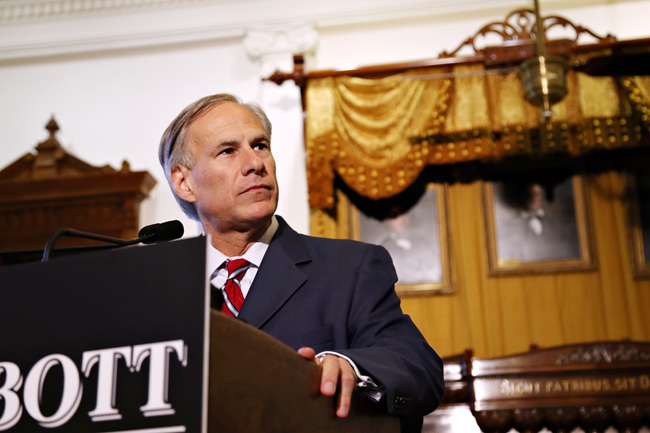Throughout the long governorship of Rick Perry, which extended throughout the first one and a half decades of this century, a key cornerstone of economic policy was investment funds. Ostensibly, they would provide incentives, subsidies and other advantages to job-creating entities, enticing them to do business in this state and — in the process — stimulating the economy. In practice, however, these funds were thinly veiled slush funds, in which Perry’s friends and benefactors would all too often receive plush payouts. Numerous audits suggest the economic benefits were minimal.
Accordingly, we were excited to hear that Governor Greg Abbott proposed the elimination of one of these funds, the Texas Emerging Technology Fund (ETF). Since its creation 10 years ago, it has doled out hundreds of millions of dollars. In 2011, the State Auditor’s office penned a scathing report that lambasted the fund’s lack of transparency, prompting many to question its underlying effectiveness. Make no mistake; the elimination of this example of crony capitalism would be good for Texas.
But it was Abbott’s suggestion for the fund’s replacement that truly elated us. The new governor’s plan would take half the ETF money, likely still nearly one hundred million, and forward it into a new fund, named the Governor’s University Research Initiative. This fund, in turn, would provide matching funds for any state university that seeks to recruit well-renowned faculty, namely Nobel Prize laureates and members of the National Academy. There would be an exception for any university that seeks to poach faculty from another Texas school, but anywhere else across the nation would be fair game. Abbott’s office particularly honed in on academics in the so-called “STEM” category of science, technology, engineering and math.
Unfortunately, Abbott’s plan dedicates the remainder of the ETF money to another controversial Perry-era slush fund: the Texas Enterprise Fund (TEF). The TEF was particularly in the news during the gubernatorial election last year, when unscrupulous dealings of some of its beneficiaries came to light. In light of the good steps Abbott took in heralding the elimination of the ETF and pledging more money toward university faculty improvement, we are disappointed to see some continued commitment toward cronyism.
However, most importantly in our view, this proposal shows Abbott’s continued attention on academic and scholastic excellence within institutions of higher education. This sharply contrasts with Perry’s typical approach of treating everything like a business, and attempting to squeeze the most products out no matter the other costs. Abbott understands that the true value of a college education extends to something deeper; something that transcends just the classes one takes. A huge part of that boils down the quality of the professors at the school in question.
Be it his recent picks for state universities’ respective Boards of Regents or this recent action, Abbott has truly blazed a new trail on higher education issues that is markedly different than his predecessor. It is more pragmatic, less ideological and far more centrist. We hope higher education is not the only issue he takes that approach on.
















